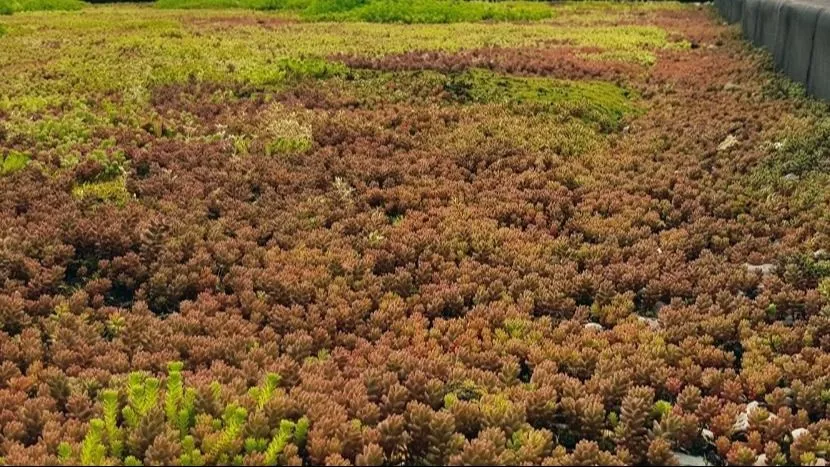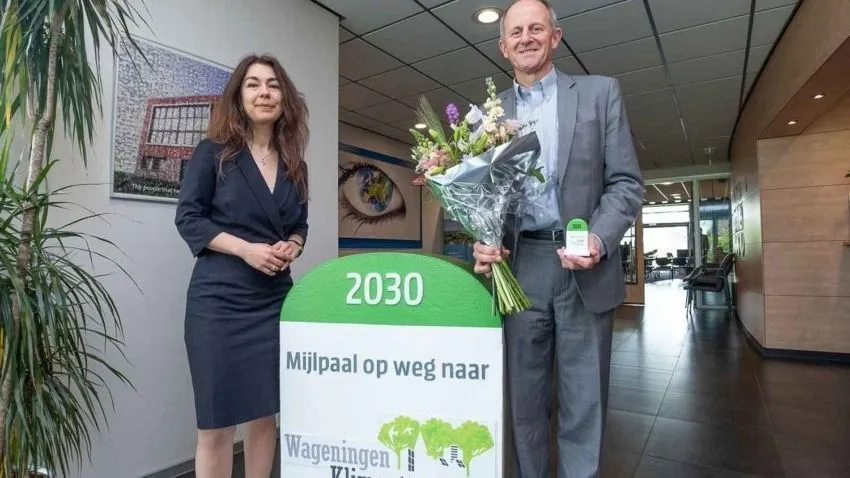August 17, 2022
Noldus’ green roof reflects the dry summer season
Last year, we decided to convert two pebble-covered roofs of our Wageningen office into green roofs, with a biodiverse vegetation cover. Now we see every day how the vegetation changes. Per hour, per day, per season. Experiencing a very dry summer, we realize even more that our impact is important.

We opened our current international headquarters in 2005 in Wageningen, The Netherlands. Today that building houses three beehives, a green roof with biodiverse vegetation covering, sedum roof, and 122 solar panels. The sedum roof covers the building’s social area and canteen. The green roof covers the entrance. The surrounding grounds are planted with native trees and shrubs, and managed without use of chemicals. Especially the green roof covering our main entrance now noticeably reflects the dry summer.
Companies of any size can make a difference
The Dutch national weather service KNMI reports that this year is well on its way to being extremely dry. It turns out that the sun is the biggest driver of the drought, just like in the extremely sunny year 2020 [1]. We believe that companies of any size can make a difference in sustainability. So next to realizing that we need to act in a sustainable matter, we also contribute to the local initiative ‘Wageningen Klimaatneutraal’ [2] where over 50 'climate partners' are working together on a climate neutral Wageningen by 2030. Already in 2018, Noldus stopped using gas. Alderman Lara de Brito commented back then: “Noldus is the first existing company to completely get rid of gas, which is really special. I'm impressed. From the start, they have been a climate partner that really inspires.” [3]

Research on the roof
So with our own eyes we observe changes on our roof, but there is also a scientist involved. Eva Drukker, researcher at Wageningen University and Research (WUR), the Netherlands uses our green roofs for her PhD research to look into the effect of green roofs on biodiversity, in particular the diversity of insects. She studies the effect of two variables on vegetation development and colonization by insects. More information about this project was presented in a blog post on our Behavioral Research Blog [4].
Links
1. https://www.knmi.nl/over-het-knmi/nieuws/zonnig-weer-zorgt-voor-droogte-dit-jaar
2. https://wageningenduurzaam.nl/gezamenlijk-klimaatplan-klimaatpartners-wageningen/
3. https://wageningenduurzaam.nl/wageningenwerktduurzaam/noldus-verdient-mijlpaal-helemaal-zonder-gas/
4. https://www.noldus.com/blog/green-roofs-research-biodiversity